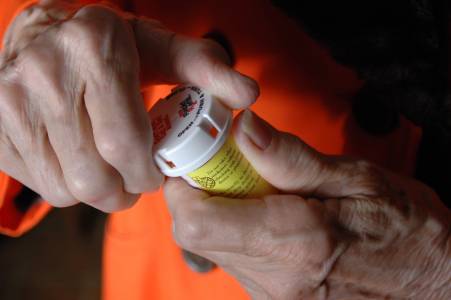Do you enjoy a piece of gum every now and then? If so, you’re not alone! Gum is a favorite treat for many of us! But what happens if your dog eats something like Trident gum?
Connect with a verified veterinarian in minutes. Licensed vets are available 24/7 to answer your questions. No need to worry about your furry family member.
What is in Trident Gum?
Trident gum is a type of sugarless chewing gum that’s extremely popular, and comes in a wide variety of flavors. This and many other brands of sugarless gum contain the sweetener xylitol.
Xylitol is extremely toxic to dogs. In fact, it doesn’t take much of this sweetener to cause hypoglycemia (a drop in blood sugar levels) and liver failure. Just one stick of gum is enough to make a small dog very sick.

So, if your dog has eaten some Trident gum, you’ll need to call the vet immediately. This is a medical emergency.
The vet will probably ask you some questions which may include the following:
- What type of gum did your dog eat?
- What are the ingredients in this gum?
- How long ago did your dog eat the gum?
- How much gum did he eat?
- How much does your dog weigh?
- Is your dog currently showing any symptoms?
Try to have as much of this information as possible ready for when you see the vet.
Symptoms of Xylitol Poisoning in Dogs
You may notice these symptoms if your dog has eaten Trident gum:
- Vomiting
- Drowsiness
- Weakness
- Tremors
- Convulsions
- Unable to control bodily movements
This is a medical emergency, so call your vet immediately, even if your dog isn’t showing symptoms. Xylitol poisoning symptoms may not be apparent for several hours after the dog has eaten the gum.

Review symptoms, medications & behavior to keep your pets healthy with a Vet Online in just minutes.
Ask a Vet Live NowDiagnosis & Treatment of Xylitol Poisoning in Dogs
When you get to the vet’s they may try to induce vomiting to help your dog get rid of the toxin.
Your vet will also perform a physical exam and may also order bloodtests. The blood tests will show if there’s been any toxic changes orliver damage.
Treatment may include intravenous (IV fluids), glucose administration, and medications to protect the liver. If his blood clotting factors have been affected, then your dog may also require a blood transfusion.
It’s more than likely that your fur baby will have to stay in the hospital to be monitored. The vet will check to make sure your dog’s liver is functioning and watch for any other signs of toxicity.
You may still need to monitor your dog after he comes home, and the vet may request updates on your dog’s condition and recovery.
Dogs who have eaten Trident gum will have a better chance at survival if they receive quick treatment. Never give your dog gum to chew, and if he accidentally eats some Trident gum, then be sure to call the vet immediately – you may save your dog’s life.
Connect with a verified veterinarian in minutes. Licensed vets are available 24/7 to answer your questions. No need to worry about your furry family member.

Gemma Cliffin BSC BVSC MRCVS
This article has been reviewed and approved by an independent Veterinarian: Dr Gemma Cliffin MRCVS is an experienced small animal vet who combines her love of writing alongside working in practice. Since her graduation from the University of Liverpool in 2014 she has worked in a wide variety of roles including first opinion practice, as a night vet and as a locum vet. She has also spent time working at a charity clinic in the Cook Islands which was a challenge but also immensely rewarding. She loves all aspects of veterinary work, but she especially enjoys medicine cases and diagnostic imaging. She is passionate about pain-management, particularly in her more senior patients. She currently works in a first opinion small animal practice in North Yorkshire where she deals with both routine and emergency cases.
Review symptoms, medications & behavior to keep your pets healthy with a Vet Online in just minutes.
Ask a Vet Live Now




